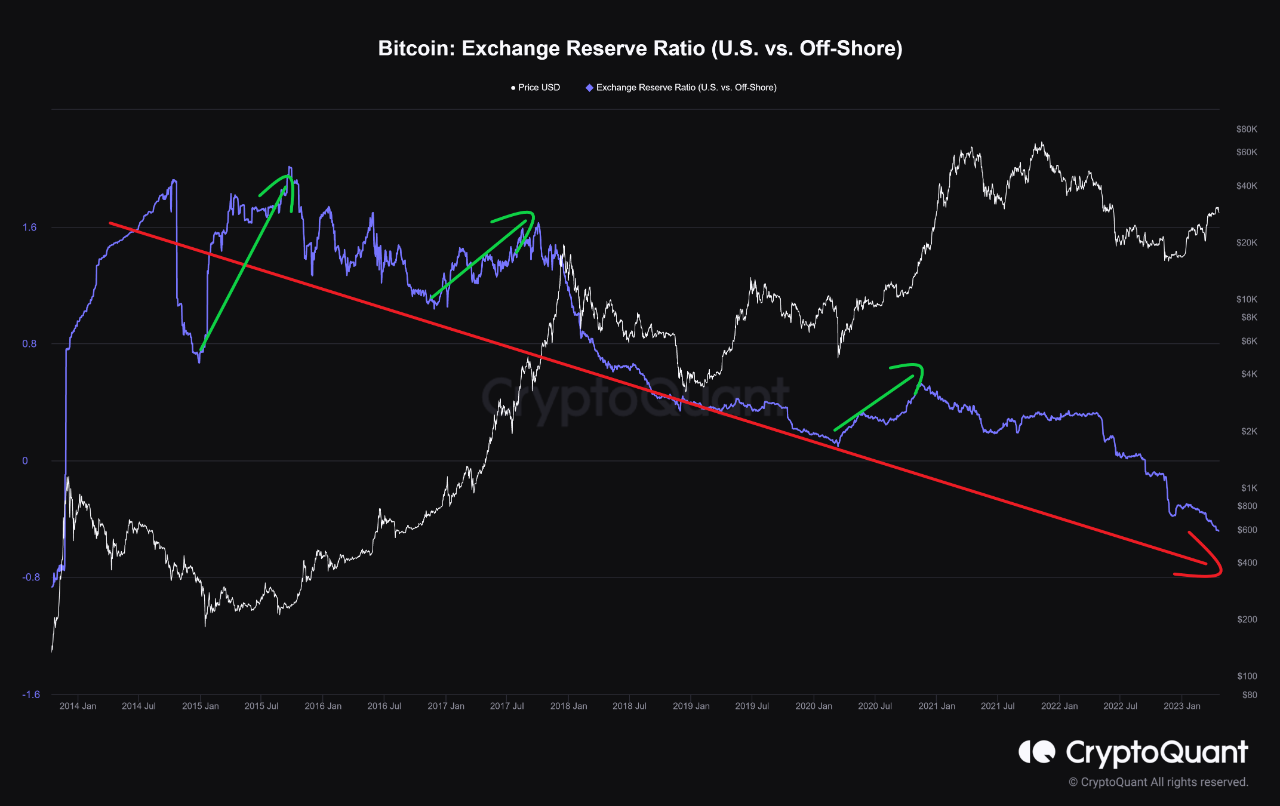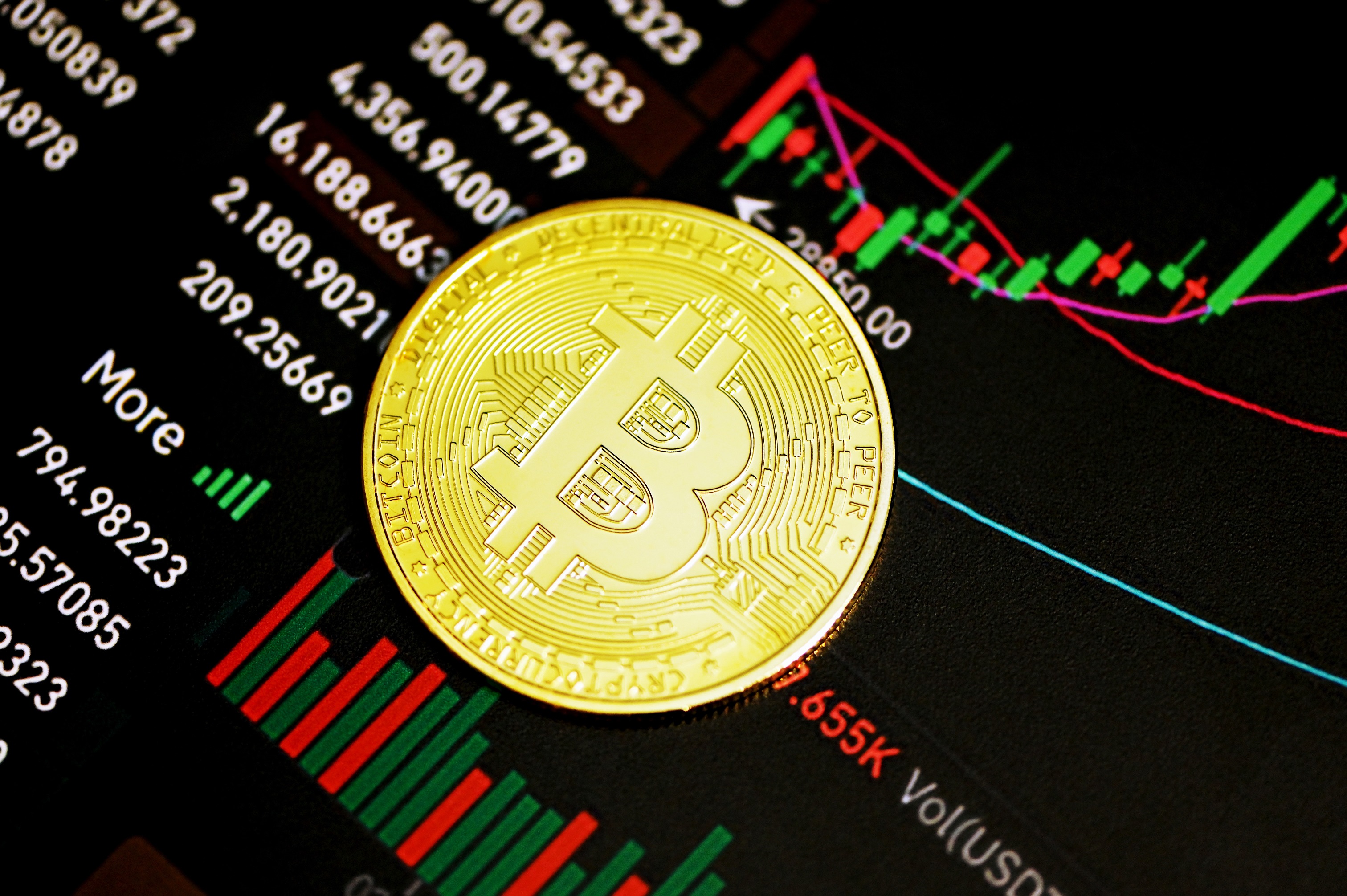A pattern in the Bitcoin exchange reserve ratio that has historically preceded the start of bull runs hasn’t formed for the cryptocurrency yet.
Bitcoin Exchange Reserve Ratio Has Continued To Decline Recently
As pointed out by an analyst in a CryptoQuant post, bull markets in the past have started with US exchanges increasing their holdings. The relevant indicator here is the “exchange reserve ratio,” which measures the ratio between the exchange reserves of any two exchange platforms or groups of them.
The “exchange reserve” here refers to a metric that tells us about the total amount of Bitcoin that’s currently sitting in the wallets of a centralized exchange (or in the combined wallets of several platforms).
In the context of the current discussion, the exchange reserve ratio is being taken between the combined reserve of the US-based platforms and that of the foreign ones.
When the value of this ratio increases, it means the total number of coins on the American exchanges is going up relative to the global platforms right now. On the other hand, a decrease implies that offshore platforms are receiving more deposits (or just observing fewer withdrawals) currently.
Now, here is a chart that shows the trend in the Bitcoin exchange reserve ratio for the US versus offshore platforms over the past couple of cycles:

As shown in the above graph, the Bitcoin exchange reserve ratio for these sets of platforms has been constantly decreasing in recent months. In fact, the indicator has been riding an overall downtrend since 2014, which means that the share of the US-based exchanges has been shrinking over the years.
This trend would make sense as many new offshore exchanges have come up (and have grown to considerable sizes) during this period as the cryptocurrency has become popular worldwide.
There have been some stretches in the past, however, where the metric has deviated from this downtrend line. The quant has highlighted these occurrences in the chart.
Interestingly, these periods of an uptrend for the Bitcoin exchange reserve ratio have come as bear markets have ended, and the buildup towards bull markets has taken place.
This would suggest that the US-based platforms have historically grown their holdings relative to the foreign exchanges when the asset has been heading toward bull markets.
Recently, however, the Bitcoin exchange reserve ratio has shown no signs of a breakdown away from the downtrend structure yet, implying that the holdings of these platforms are still decreasing.
“The percentage of Bitcoin held by U.S.-based exchanges, banks, and funds has not yet risen,” notes the analyst. “I believe it is still too early for a true bull market to arrive.”
BTC Price
At the time of writing, Bitcoin is trading around $28,000, down 9% in the last week.









